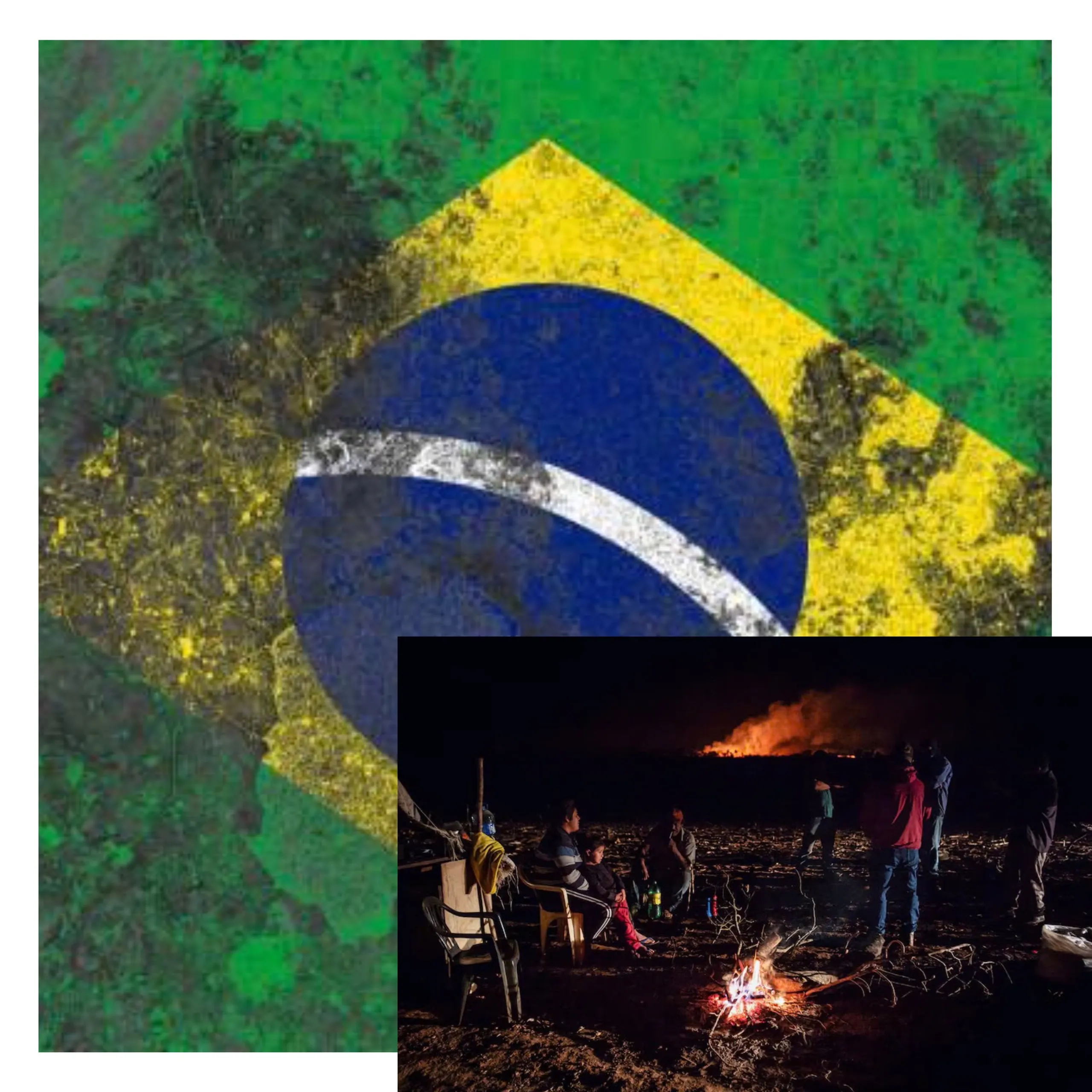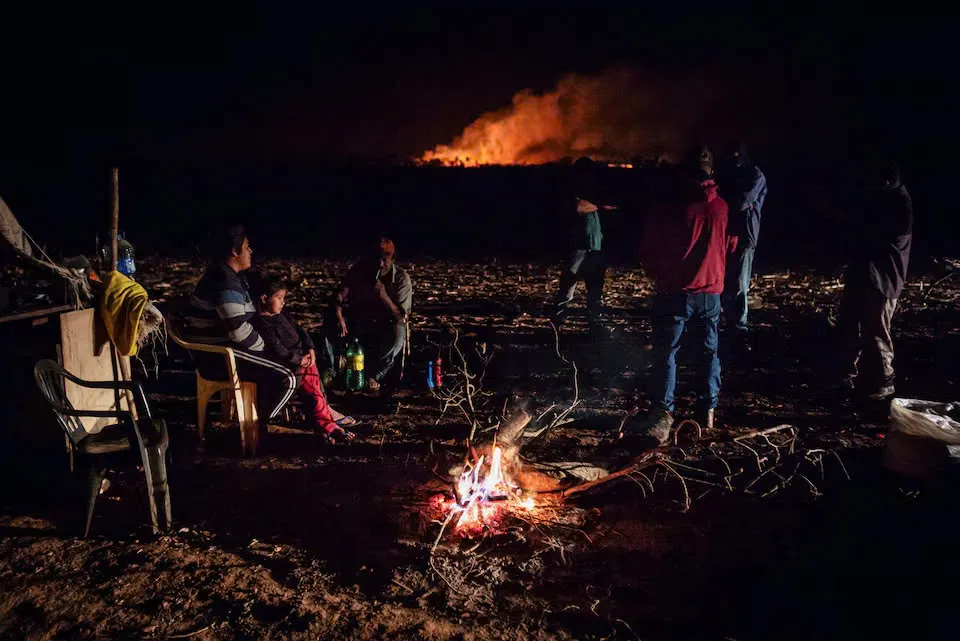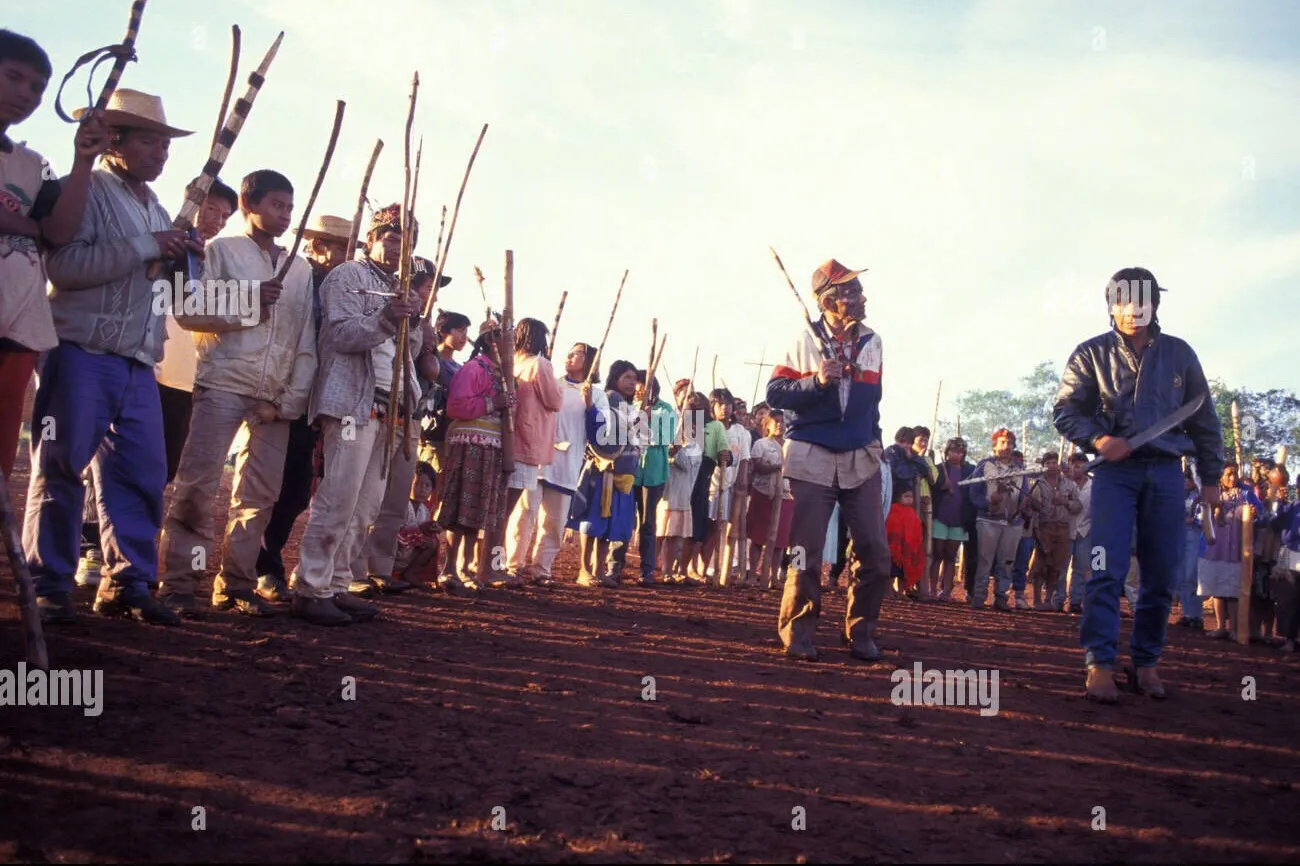
A shocking attack took place in the Brazilian state of Mato Grosso do Sul over the weekend as farmers clashed with indigenous communities reclaiming land. The news was announced by officials on August 5, raising concerns about tensions and land rights conflicts in the area.

Guarani Kaiowa indigenous people set up camp to reclaim their land in Douradina, Mato Grosso do Sul state, Brazil, August 3. Photo: Reuters
The Indigenous Affairs Ministry said it had received reports of farmers attacking Guarani Kaiowa indigenous people in the city of Douradina in Mato Grosso do Sul state on August 3, injuring 11 people. Five of them were taken to hospital for treatment of gunshot and rubber bullet wounds.
A new attack on Guarani Kaiowa people occurred on the night of August 4, sparking a fire, officials said. They said tear gas was used and at least four gunshots were fired, although the perpetrators have not yet been identified. At least one farmer was injured in the incident. Prosecutors are expected to open a police investigation to determine whether any crimes were committed.
The Guarani Kaiowa indigenous people are “claiming their land” in the Panambi-Lagoa Rica territory, an area recognized as indigenous in 2011 before the court halted the process, according to the Ministry of Indigenous Peoples.
The Guarani Kaiowa set up camp to reclaim their land on July 14, said Anderson Santos, a lawyer with the Indigenous Missionary Council, a human rights group. Local landowners responded by setting up their own camp about 150 meters away and harassing the indigenous camp.
On the night of August 4, the farmers removed a rope set up by the indigenous group to mark the land they claimed, and burned the indigenous camp.
The Ministry of Indigenous Peoples has pointed to the ambiguity of the legal situation surrounding indigenous land claims as the cause of the violence. In response, Supreme Court judges and lawmakers met to discuss and find a solution to the disagreements surrounding a controversial law regarding indigenous land rights.

The Indians faced armed peasant governments and protracted legal battles to demarcate boundaries and secure permanent ownership of their land./ photo: Ricardo Funari – source: Alamy
Violent land disputes are on the rise amid heated debate over the movement to limit indigenous claims to their ancestral lands. Currently, less than half of Brazil’s 1.6 million indigenous people have access to about 13% of the country’s land, reflecting the injustices and challenges they face in defending their rights.
Brazil’s Justice Ministry announced on August 5 that it would send more federal police to the state of Mato Grosso do Sul to deal with tensions between indigenous communities and farmers over land disputes. The ministry said that the National Public Security Force had increased its presence in the area since early July, but would now deploy more agents to reinforce security and stabilize the situation.



